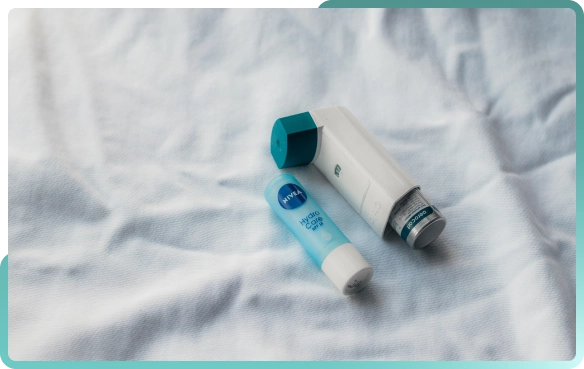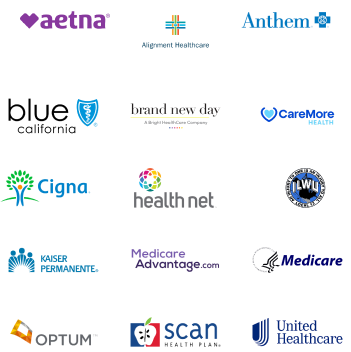Asthma Treatment
Asthma is a chronic medical condition that affects over 26 million people in the US. Due to a combination of environmental factors, lifestyle changes and improved diagnosis, the prevalence of asthma has grown rapidly in recent years. It has become much more common in both the extremely young and in older patients.

Symptoms of Asthma
Acute asthma exacerbation (aka an “Asthma Attack”) is a severe worsening of asthma symptoms. These episodes are characterized by sudden and significant increases in shortness of breath, wheezing, coughing, and even chest tightness. People with asthma are prone to these exacerbations, and during these exacerbations, patients or the parents of patients should seek immediate medical care.
Diagnosing Asthma Symptoms
History and Physical Examination
At ContinuEM, the diagnosis of an acute asthma exacerbation begins with a thorough medical history and physical examination. The Emergency Room doctor at ContinuEM will ask about the duration and severity of symptoms, as well as any previous episodes of exacerbation. The physician will also perform a full physical exam, listening to the patient's chest to assess the presence of wheezing and the severity of the asthma attack.
Types of Tests to Confirm Diagnosis
In addition to the history and physical examination, the ER physician may also order various tests to confirm the diagnosis and determine the severity of the exacerbation. These tests may include a pulse oximetry test to measure the patient's oxygen saturation levels, a peak flow meter to assess the patient's lung function, and a chest x-ray to rule out other potential causes of the symptoms such as pneumonia. If an underlying infectious process is being considered, lab work or viral swabs can be performed.
Why Does Asthma Happen?
Asthma occurs because of three different processes in the body: constriction of the bronchioles (bronchocontstriction), airway inflammation and mucous impaction. Depending on the severity of the asthma episode, treatments can be used to target all three pathologic causes of the episode.
Treating Asthma
Treatment of an acute asthma exacerbation in the ER involves relieving symptoms and restoring normal breathing while addressing the three pathologic features described above . The first line of treatment is to provide the patient with oxygen to help improve oxygen saturation levels. The ER physician will likely use a nebulizer to administer bronchodilators, which are medications that relax the bronchioles and relieve wheezing and chest tightness. Albuterol is the most common of these types of medicine, and this can provide the fastest relief. Other inhalers such as Ipratropium Bromide help decrease the mucus impaction discussed above.
In more severe cases, the ER physician may also prescribe corticosteroids, such as prednisone, to reduce inflammation and swelling in the airways. These medications can be given orally or intravenously, depending on the severity of the exacerbation.
If the asthma exacerbation persists even after the treatments described above. bronchodilators and corticosteroids, the ER physician may also use other medications to treat an acute asthma exacerbation. For example, magnesium sulfate may be administered intravenously to reduce airway smooth muscle contractions and improve breathing. There are more medications in our arsenal if the exacerbation persists even after these steps, though a vast majority of asthma exacerbation will improve with the steps detailed above.
Preventing Asthma Attacks
Finally, prevention of these asthma flares are critical so that patients limit their need to go to ERs. People with asthma should be aware of their triggers and avoid exposure to them whenever possible. They should also have an action plan in place, including regular follow-up with their healthcare provider and a quick-relief medication, such as an albuterol inhaler, on hand in case of an exacerbation.
We’ve Got You Covered
Our goal is to provide urgent medical care to anyone in the area in their time of need at a cost that is right for them.
Insurance & Pricing
